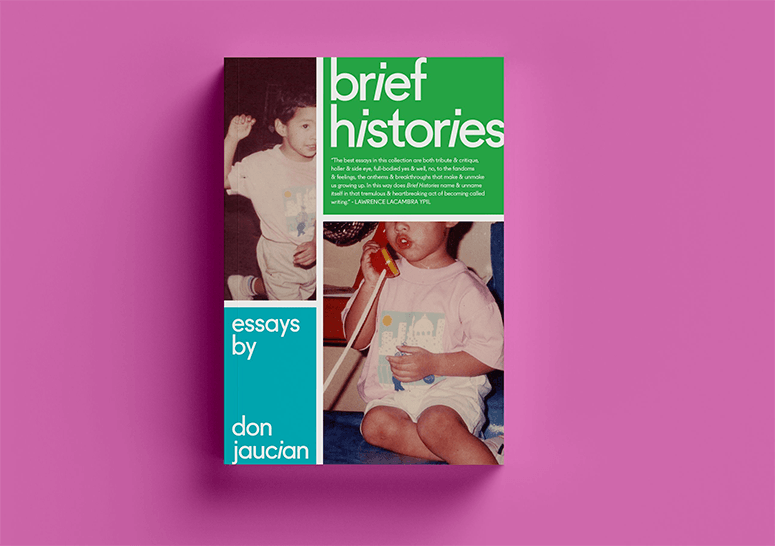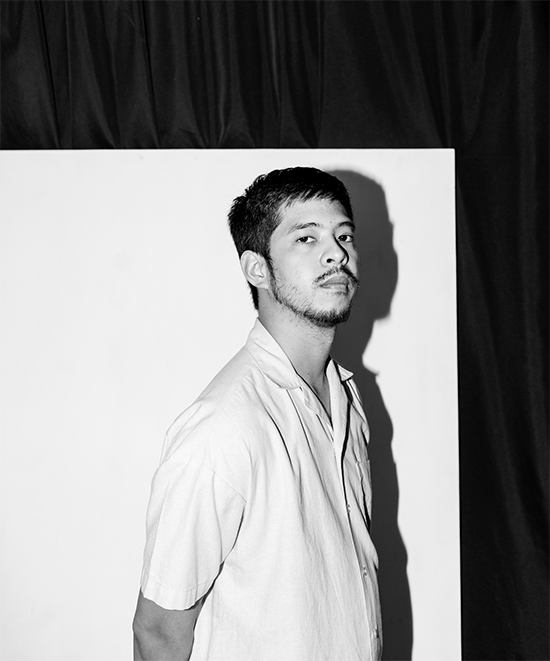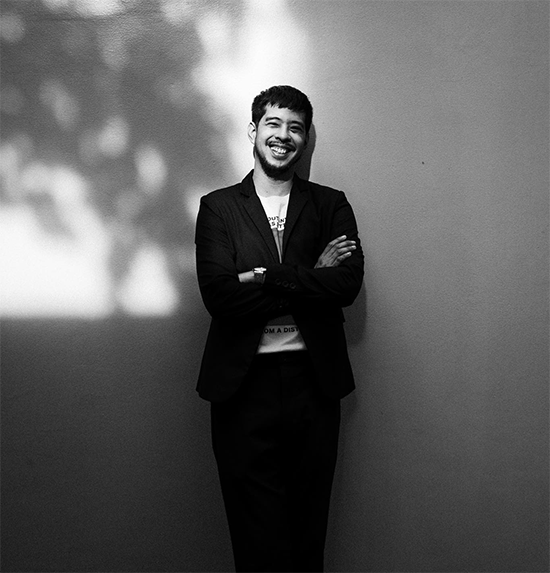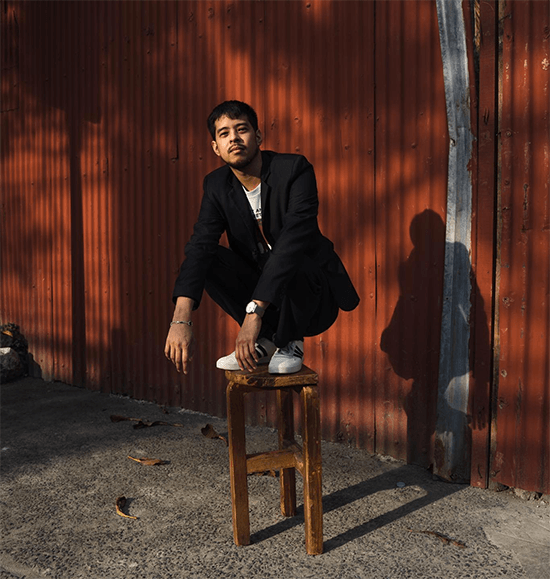Don Jaucian and the brief histories that made him
When I flipped through Don Jaucian's Brief Histories, I knew I wouldn't be able to put the book down. Each piece within the essay collection felt like an intimate conversation with a friend where all my joys and insecurities were allowed to simply be.
As the features director of CNN Philippines Life, Don wrote a book that was not only personal, but sharp in its criticism of the existing system. His book looked closely into the disenfranchisement of the queer community in a country that refuses to protect our basic human rights to this day.
With vulnerable yet unapologetic narration of his experiences as a gay man, Don captured the often-overlooked resilience of queer people, and how we survive by finding spaces like pop culture, animated shows, and even video games. Reading these colorful essays gave me newfound appreciation for my sexuality.

By the time I finished reading, I felt less alone, because the little gay boy inside of me finally found a companion after being misunderstood for a very long time.
YOUNG STAR talked to Don about his debut book and the importance of queerness and space.
YOUNG STAR: Can you walk us through the process of how Brief Histories came to be?
DON JAUCIAN: I wasn’t planning to have a book since I was focused on work, but writers still want to have their own books, ‘di ba? In January 2019, I sat down and produced two sample manuscripts. One was a compilation of film journalism, and the second was a manuscript of personal essays which became Brief Histories.
Then later in 2020, lumapit sakin si Katrina Stuart Santiago of Everything’s Fine. I sent her my manuscripts and asked which one she was more interested in, and she said mag-personal essay muna tayo.

We originally wanted it to be published in December 2021, so I took a month off from work to write. Within that month, I finished the draft but I wasn’t satisfied with it. It took me until June this year to finally put out a book that I’m okay with.
Your column for PhilSTAR was Brief Histories, right? What prompted you to use the same title for the book?
It has always been the working title of the book, but for a few months this year, I really wanted the title to be, Someday I Will Learn to Love My Body, because there are a lot of essays in the book that talked about my perception of the body, and body as space.
I talked to friends about this and someone pointed out that since I lifted the title from Ocean Vuong’s poem Someday I’ll Love Ocean Vuong, people will always associate the title with him. It made sense, so we reverted.
As a reader, I’m always looking for stories or essays that kind of reflect the world that I was living in. I wanted to write essays for the little boy in me.
I like the current title because these are glimpses of instances in my upbringing as a gay kid in Olongapo City, and the challenges of moving to and being gay in Metro Manila.
How did your experiences as a queer person shape your identity as a writer?
The way the book is divided reflects all the spaces that are very important to me.
The first part is more on pop culture since it's the most immediate element in my life. Another space that is in the book is the found family, which is important to any queer man. Kaya nga uso yung mother sa ating mga bading, because we see other queer people as family.
One of the things I find the hardest is finding the courage to open up in my works, and Brief Histories is built upon that courage. Why is it important that we, as queer people, share our stories?
As a reader, I’m always looking for stories or essays that kind of reflect the world that I was living in. I wanted to write essays for the little boy in me. I wanted to write stories that I thought teenage Don would be really interested in. I think that’s part of why I chose to write those essays.
When I was researching your book, I came across a reader who likened one of your essays to a long and tight hug. How do these types of responses make you feel?

I don’t know. The fact that I published a book is still so surreal but I get responses saying they can relate, and some even cried.
Nakakatuwa because it means my book has a place in our lives as queer people. It makes me happy since there was a time when I didn’t want this book to be published because I was having a lot of doubts about whether the book had something new to say.
The way I wrote the new essays in the book is a reflection of how different forces like capitalism and colonialism shape queer lives.
I’m really thankful for the people who are reading the book and finding it useful. I’m just relieved and happy people are finding themselves in the book even though medyo specific yung experiences.
If I’m not mistaken, the book has essays from years ago. How was it looking back to your previous works?
Cringe. (Laughs) Working on the book was really just working on myself and seeing myself reflect on things that are really important to me during my formative years. Natatawa lang ako sa sarili ko dahil ito pala yung nangyari sakin before.

On a personal note, I’m glad that I wrote this book more because of my poor memory. There are parts in the book which I wrote for myself and for the people I love because these are the things that happened to us.
I noticed while reading that it doesn’t only focus on the individual, but also sheds light on what’s happening around us.
When I was starting, I was more focused on the individual. My working consciousness before was shaped by the themes in western media, which are usually individualistic.
I started to become more conscious of the times as a writer because of the work I have now. When you're in a newsroom, you have to be aware of the things that are happening around you.
What is your hope for Brief Histories?
The way I wrote the new essays in the book is a reflection of how different forces like capitalism and colonialism shape queer lives. Hindi mo siya masyadong naiisip pero malaking factor siya sa buhay natin. They manifest the system that we’re in.
Sana makarating siya sa mas marami pang tao at mas bata. I’m interested to know what they think of our generation and how we grew up. Exchange ideas. I also hope that the book will still reflect the struggles that continue on to this day because there’s still a lot to fight for.


